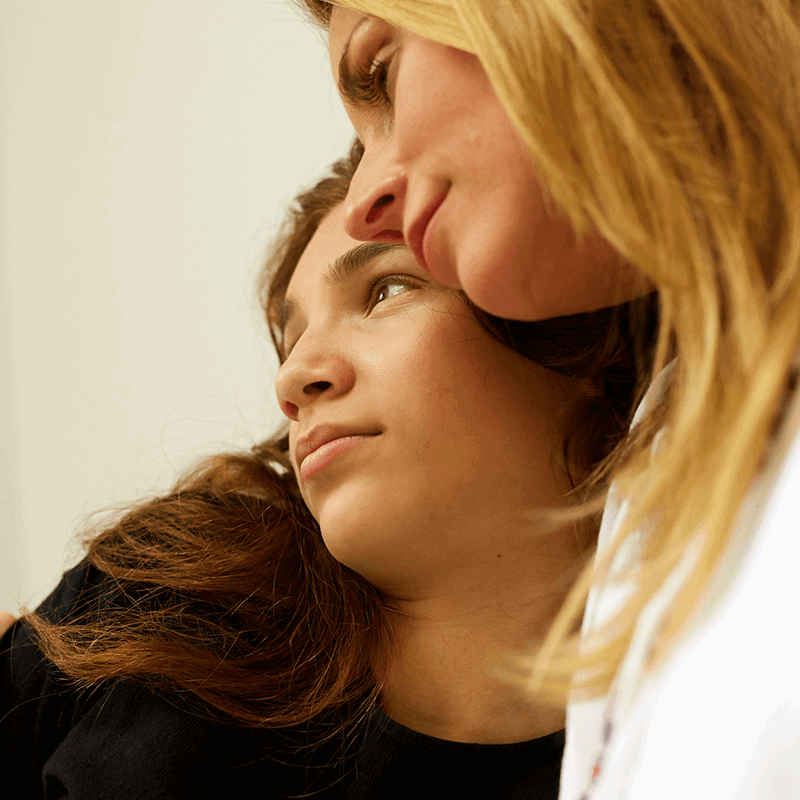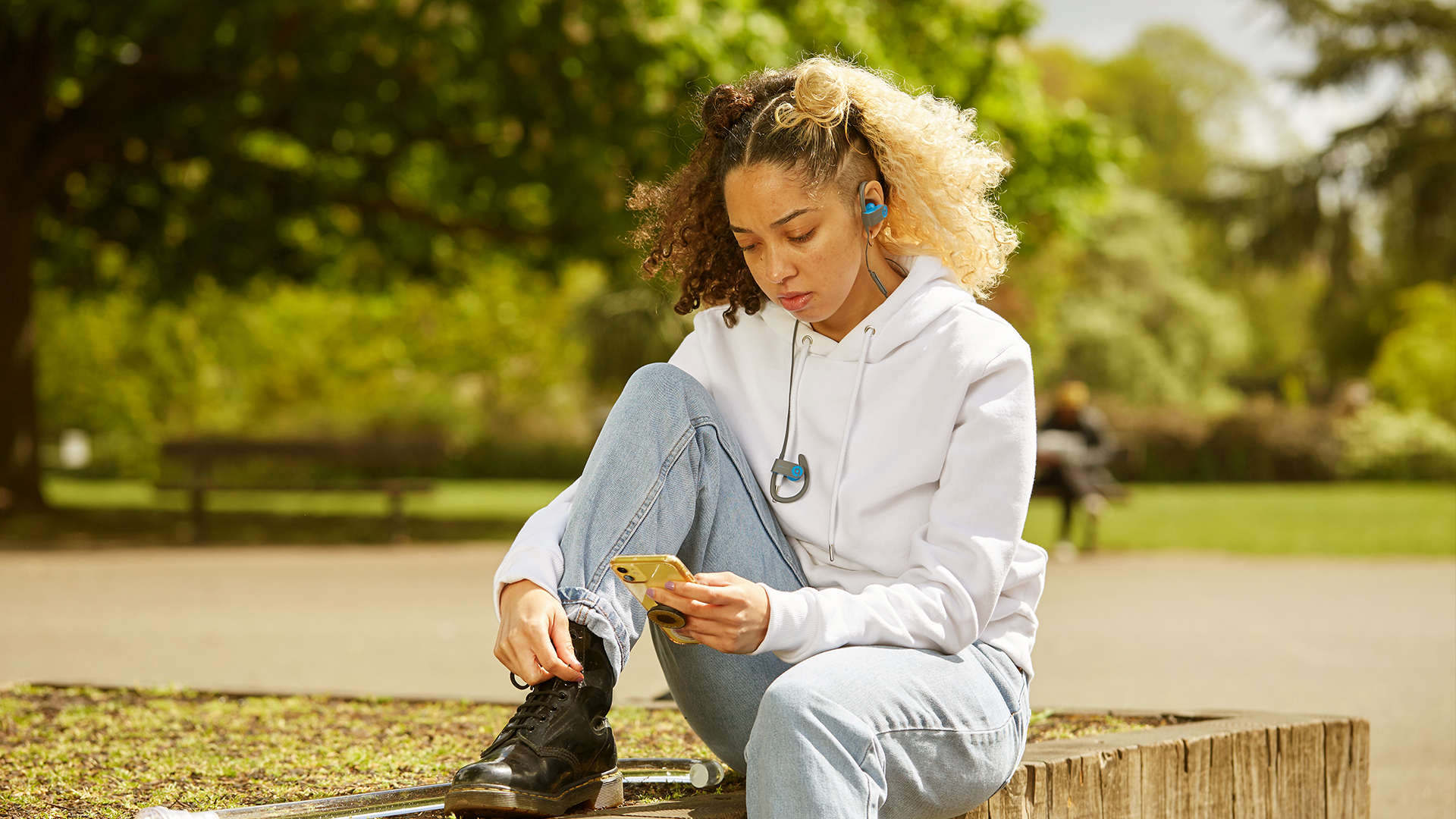Young people want their parents to:
- show unconditional kindness and acceptance – whatever their sexuality, gender, race or ability
- let them vent when they need to
Bullying is any repeated behaviour that intentionally hurts someone else. It can be physically or emotionally hurtful, or both. It can happen anywhere. It might be at school, a workplace, online, in social spaces or at home.
Bullying is never okay or excusable. It can have a huge impact on a young person’s wellbeing. It can also have a longer-term effect on their mental health, even after it has stopped.
When these types of behaviours happen online, it’s often known as ‘cyberbullying’.
These types of bullying are legally defined as hate crimes.
If a child or young person is being bullied, they might:
It’s important to remember that there could be lots of other reasons for these changes. If you’ve noticed some of these signs, the next step is to talk to your child or young person to find out what’s going on. We’ve got tips to help you do this below.

If you’re worried about bullying, gently check-in about what's going on. Here are some tips to help you have the conversation:
Talking during an activity can help your child or young person to relax. This can support them to open up and make it feel like less of a ‘big chat’. You might be walking, driving somewhere or cooking together.
You could say something like, ‘I’ve noticed that you seem really down at the moment and I’m worried that something might be going on at school. Can we have a chat about it?’.
Remember that they may feel scared or embarrassed about what’s going on. They will need you to be calm, listen carefully, and empathise with how they feel.
Let them know that they do not deserve to be treated this way. It is not their fault and they have not done anything wrong.
It can also help to explain what bullying is and how it makes people feel. This shows them they're not alone in going through this. And that what they're feeling is normal.
Let them know that you love them and you’re here for them. Explain that you can work to make things better together. Reassure them that you can take steps towards making sure the bullying stops.
Lots of young people will find it hard to talk to their parents. If they don’t want to talk, try again another day. You can also try messaging, texting or writing a letter instead. If they can't talk to you at the moment, encourage them to reach out to friends, teachers, other trusted adults or a helpline.

It’s important to focus on taking practical steps towards making sure the bullying stops. Your child or young person can only start to recover from what’s happened when they feel safe again.
Wherever the bullying is happening, keep a record of any incidents as soon as they start. This will help when you’re reporting it to professionals. Each time there is an incident, try to:
If your child or young person is anxious about school, or feels like they cannot go, you can find advice about this in our guide for parents and carers.
Childnet has more information about online bullying and staying safe online.
If the bullying is a danger to your young person’s safety, or makes anyone feel unsafe, report your concerns to the police. You can do this by calling 101 if the situation is not an emergency. If anyone is in immediate danger, call 999 for emergency support. You can also report any type of hate crime to the police.
Check-in with them regularly about how things are feeling. Each time you talk, listen calmly and carefully. Keep reassuring them that they are loved and they do not have to put up with bullying. Let them know that you will be there to support them throughout the experience.
Do activities together that they enjoy. This can give them a sense of achievement and belonging. You might do exercise together, play sport, cook or bake, or watch a favourite TV programme. Try to notice and celebrate their efforts in these activities. You can find more advice about self-esteem in our guide for parents and carers.
Help them to think about who these people are. If they’re not sure, it might help to join a club or group where they can meet people with shared interests.
Remember that some young people find it hard to spend time with new people. They may need space and time to give this a go. This can be especially true if they see the people doing the bullying as their friends.
Lots of schools provide a counselling service for their students. They may also be able to offer drop-ins, mentoring, peer buddying and activity clubs. Or the school may be able to refer your child or young person to local services that support with bullying.
While we take care to ensure that the organisations we signpost to provide high quality information and advice, we cannot take responsibility for any specific pieces of advice they may offer. We encourage parents and carers to always explore the website of a linked service or organisation to understand who they are and what support they offer before engaging with them.
We support parents and carers who are concerned about their child or young person's mental health. Our Parents Helpline provides detailed advice and information, emotional support and signposting.
You can speak to us over the phone or chat to us online.
You can speak to us over webchat between 9.30am and 4pm from Monday-Friday. When we’re closed, you can still leave us a message in the chat. We’ll reply to you by email in 3-5 working days.
Information, advice and support for parents, carers and other family members who are concerned that a child is being bullied or may be involved in bullying others.
You can also contact them via WhatsApp on 07496 682785.
Advice and support for anyone who is worried that a child is being bullied or cyberbullied.
If you are deaf or hard of hearing and have a webcam, you can contact them via SignVideo using British Sign Language (service Monday to Friday, from 9am to 6pm).
A confidential and independent helpline for anyone experiencing Hate Crime and discrimination. You can use the helpline to report incidents and get help and support. The helpline is open 24/7 and is reachable by phone, text or email.
Please note that this service is only available in some parts of the UK. Please use their form to check whether you can use the helpline in your area.
If you’re under 19 you can confidentially call, chat online or email about any problem big or small.
Sign up for a free Childline locker (real name or email address not needed) to use their free 1-2-1 counsellor chat and email support service.
Can provide a BSL interpreter if you are deaf or hearing-impaired.
Hosts online message boards where you can share your experiences, have fun and get support from other young people in similar situations.
Formerly known as MeeToo. A free app for teenagers (11+) providing resources and a fully-moderated community where you can share your problems, get support and help other people too.
Can be downloaded from Google Play or App Store.
Provides faith and culturally sensitive support for young Muslims.
Online chat service available during opening hours.

This page was reviewed in April 2024.
It was created with parents and carers with lived experience of supporting their child or young person with bullying.
We will next review the page in 2027.
YoungMinds is a proud member of PIF TICK – the UK's quality mark for trusted health information.
Whether you love the page or think something is missing, we appreciate your feedback. It all helps us to support more young people with their mental health.
Please be aware that this form isn’t a mental health support service. If your child is in crisis right now and you want to talk to someone urgently, find out who to contact on our urgent help page.
At YoungMinds we take your privacy seriously. If you’d like to read more about how we keep the information we collect safe, take a look at our privacy policy.